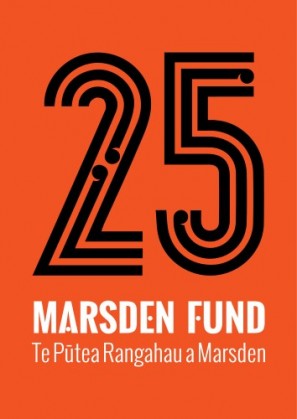MacDiarmid Institute-led research recieves $4.1 million funding
5 November, 2019
 MacDiarmid Institute-led advanced materials and nanotechnology research received $4.1 million funding through the 2019 Marsden Fund Te Pūtea Rangahau. Established by the government in 1994, the competitive Marsden Grant supports excellent fundamental research across science, engineering and maths, social sciences and the humanities.
MacDiarmid Institute-led advanced materials and nanotechnology research received $4.1 million funding through the 2019 Marsden Fund Te Pūtea Rangahau. Established by the government in 1994, the competitive Marsden Grant supports excellent fundamental research across science, engineering and maths, social sciences and the humanities.
MacDiarmid Institute researchers are leading six Standard grant projects (worth up to $960,000 over three years) and two Fast-Start grants projects for emerging researchers (worth $300,000 over three years).
- Reinventing asymmetric catalysts using multicomponent frameworks ($891,000), Professor Shane Telfer, Massey University
- Understanding bacterial membrane transport protein: setting an antimicrobial TRAP ($890,000), Professor Renwick Dobson, University of Canterbury
- Engineering defect-free organic framework membranes in tubular ceramic supports ($300,000), Dr Matthew Cowan with Professor Paul Kruger, University of Canterbury
- Photon multiplying light harvesting antenna systems for luminescent solar concentrators ($300,000), Dr Nathaniel Davis, Victoria University of Wellington
- Next generation magneto-piezochrmoic composites for optically based intelligent magnetic field sensing ($837,000), Dr Shen Chong with Dr Grant Williams and Professor Jeff Tallon, Victoria University of Wellington
- Can enhanced exciton diffusion propel organic photovoltaic cells beyond the bulk heterojunction? ($891,000), Professor Justin Hodgkiss, Victoria University of Wellington
MacDiarmid Institute researchers are also contributing to the following Fast-Start grant projects:
- Could airborne microplastics play a role in climate change? ($300,000), Dr Laura Revell with Professor Eric Le Ru, University of Canterbury and Victoria University of Wellington
- Development and assessment of a multi-spectroscopic fiber optic probe capable of disease diagnosis in the gastro-intestinal tract ($300,000), Dr Sara Miller with Professor Keith Gordon, University of Otago


